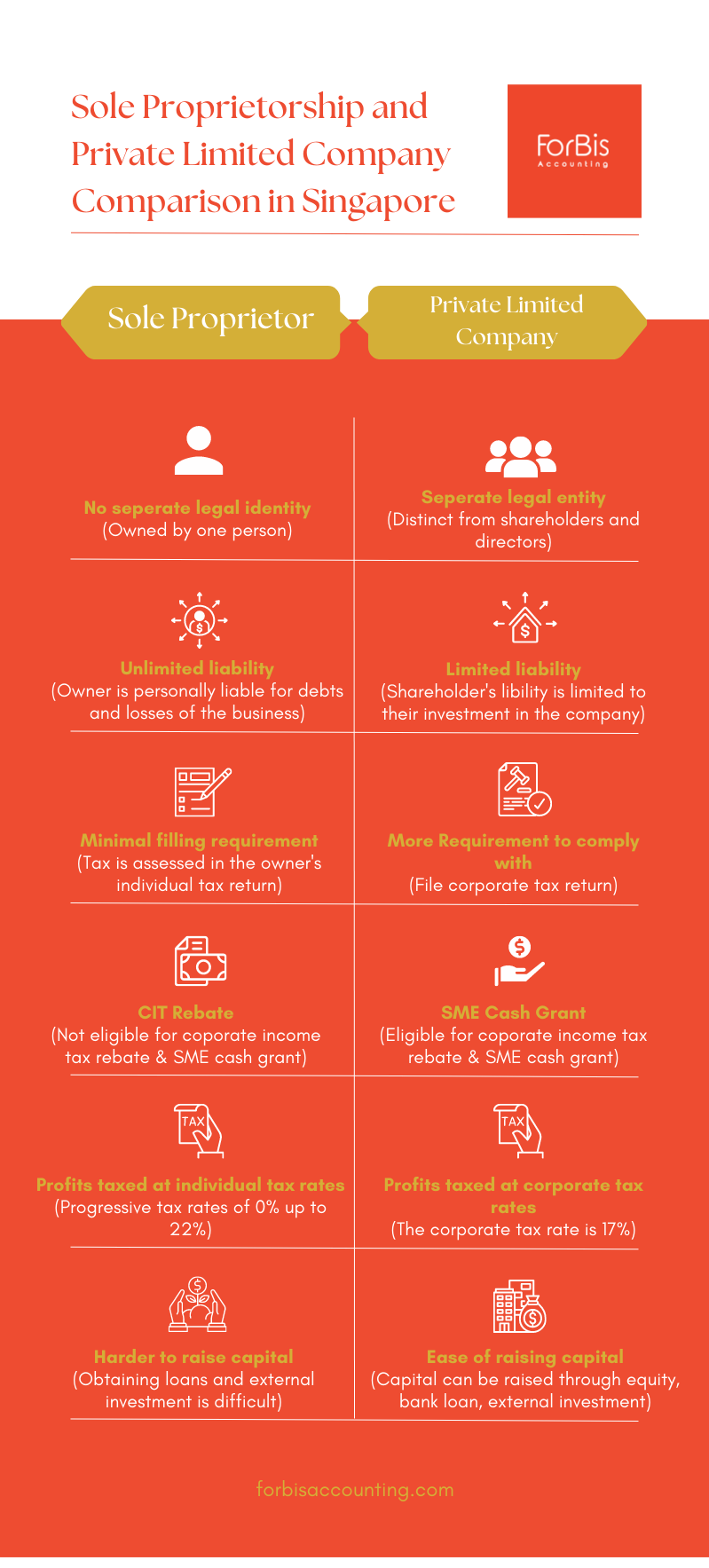To be a Sole Proprietor or Incorporate a Private Limited Company in Singapore: Which is the best option?

Starting a business can be an intimidating process. You need to come up with a business strategy, solicit customers and manage short- and long-term finances. Plus, sorting through the paperwork, forms, and registration steps to legally set up your business can be even more frustrating.
When you’re considering the legal structure of your business, one of the key things to decide when starting a business in Singapore is the form that the business will take. There are 2 common types of business structures, sole proprietorship and incorporation of a private limited company.
Each of these forms of business ownership has advantages and disadvantages that you will want to weigh before choosing a particular form of business for your new venture. In this comprehensive guide, therefore, we’ll break down the advantages of a self-employed individual, sole proprietor, or incorporation of a private limited company (as well as the disadvantages) so that you have all the information you need to decide if this entity type is right for your business.
What is Sole Proprietorship?
A sole proprietorship is a business that can be solely owned and controlled by an individual, a company, or a limited liability partnership. There are no partners in the business. The legal status of a sole proprietorship is not a separate legal entity from the business owner and the business owner has an unlimited liability.
A sole proprietorship is the easiest structure to create and is often chosen by brand new business owners. If you choose this structure, you are the sole owner of your company and both you and your business are one and the same by law and in the eyes of tax authorities. All of the profits your business earns are yours to keep. If you ever need to satisfy business debts, as a sole proprietor anyone from tax authorities and creditors to individuals can make claims against your business as well as your personal assets.
Advantages of Sole Proprietorship
-
It’s simple and affordable
-
Operating freedom and flexibility
-
Simplified Tax Reporting
-
Simplified ownership
Disadvantages of Sole Proprietorship
-
Assuming all the liability of the company
-
Financing and business credit are harder to procure
-
Difficulty Raising Funds
-
Renewal is required annually/bi-annually
-
Dies with the proprietor, cannot be transferred or sold.
What is a Private Limited Company?
A private limited company is a company that is limited by shares held by less than 50 persons and is not available to the general public, it is a separate legal entity from its shareholders, which means it is also recognized as a taxable entity. you will find that most entrepreneurs prefer the option of a private limited company because of the flexibility that it offers.
A company is often seen as a “legal person” since it can sue or be sued in its name. Its capacity is not tied to any single shareholder or director. This means that all the business assets, liabilities, and profits belong to the company itself and the shareholders are not wholly responsible for debts incurred by the company. Like a sole proprietor, a company can also have only one director & shareholder. However, the Company enjoys limited liability and potential savings from proper tax planning.
Advantages of a Private Limited Company
-
Income advantages
-
Tax savings
-
Business continuity – always live until strike off application. Survives the initial owners, easily passed on or sold to others.
-
Professional status
-
Funding opportunities
Disadvantages of a Private Limited Company
-
Set up costs
-
Company accounts
-
Shared profits
-
Personal information disclosure
-
Strict record-keeping procedures
-
Name restrictions
